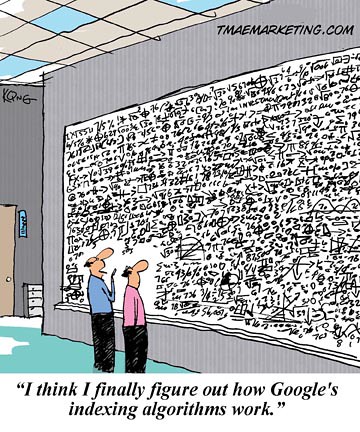
With the advent of Google Places (formerly Google Local) listings within the search engine results pages, law firms continue to realize the importance (and limitations) of a good
Google Places Optimization strategy. But Google Places are NOT displayed with every search result which means there are additional ways to take advantage of Google Places...especially when they are NOT displayed.
Google Places are displayed around common searchesGoogle Places are displayed when a more common search term or phrase is used within a specific geographic region. For example, a
personal injury lawyer search in most towns and cities will provide a list of Google Places listings while a search for a mail fraud attorney will not.
Not all practice areas are displayed in a Google Maps
Some of the most common attorney practice areas tend to display Google Places listings by virtue of their commonality and frequency of repeatable search. Naturally, the larger the metro area, the more common you are to see these places results - and visa versa.
Google Places listings can be limiting for law firms
If you are a
law firm with multiple practice areas, you may find
optimization of your Google Places listing to be limited. For example, there are only 5 business categories (aka practice areas) you can select for any one Places listing yet you may have dozens of
Google Places results (or more) for your various practice areas. In these instances, attorneys will often times have to prioritize which areas are the most important to include in their places listings while forgoing the rest.
Build Targeted Pages & Websites around those search areas that do not involve Google PlacesAs more and more
attorneys are marketing online, the competition for the coveted page one results are becoming increasingly fierce and expensive. If you are a personal injury attorney, divorce attorney or criminal defense attorney in a larger city, you know exactly what I mean.
But just because you may not be able to compete for these important positions doesn't always mean that you can't compete for new clients online. For example, say you are a
criminal defense attorney in
New York City who wants more
white collar crime cases. In this case, you will find both the criminal defense and white collar searches include a map. If however you look more specific into a white collar case type, you will commonly find that such areas as: mail fraud, tax fraud, mortgage fraud, etc. DO NOT display Google Places in the search results - almost completely organic results are displayed.
Are these as heavily search terms as criminal defense? No. But does this mean that even in smaller quantities these are not value cases with potentially higher relative conversions? No. To add further, how would a potential
#1 position of mail fraud in NYC which gets around 36.4% of the first-page clicks in Google compare to the 5th position for criminal defense
attorney that only gets 6.1%? In this example alone, you could get around 6X the number of clicks for mail fraud over criminal defense. Remember, in the end, ROI is all that matters and just because you think you have an acceptable showing for a given term (criminal defense) doesn't always mean that this will translate into a better return than an alternative top position (
mail fraud).
Allows you to better market beyond your current geographySo what if you practice beyond the scope of your current office location? In most cases, attorneys are either left with no Google Places result for that area or have to find another office to use to help support another places listing - no small effort. But does this mean you have to market yourself in the same manner as where you office resides? Not necessarily. As we described above, not all practice areas have a supporting Google Places listing. This means that the only real limitation for your competitive positioning is your on-site
SEO and
link building efforts to your practice area pages on your
website.
So in following our example above, you may be a criminal / white collar attorney who handles mail fraud cases in your hometown of
San Diego but with good SEO tactics, your mail fraud page, with proper
on-site SEO and deep linking can potentially perform just as well in
Los Angeles and
San Francisco as well.
SummaryAs you can see above,
Google Places optimization for
law firms is clearly important but certainly not the only strategy in your legal marketing efforts. As
deep linking becomes increasingly important to improve the important of your targeted practice area pages, it is equally important to know how these various pages will display in the search engines like Google in order to determine your strategy for success online.
The
SEO Consultant Firm provides
advanced law firm search engine optimization. Contact us today to learn more about how we can help your firm...
 Every year, Google makes around 500 changes to their search algorithm
but when April of 2012 rolled around, Google unloaded a whopper in their Google
Penguin release. A lot has been recently written about the impacts of this
release and we are still measuring the effects. The bottom line is that a lot
of websites were affected both positively and negatively and most people want
to know why. Google won’t tell us because they make money selling their paid
advertising which is the one thing they will help you understand. What we do know is the following:
Every year, Google makes around 500 changes to their search algorithm
but when April of 2012 rolled around, Google unloaded a whopper in their Google
Penguin release. A lot has been recently written about the impacts of this
release and we are still measuring the effects. The bottom line is that a lot
of websites were affected both positively and negatively and most people want
to know why. Google won’t tell us because they make money selling their paid
advertising which is the one thing they will help you understand. What we do know is the following:






